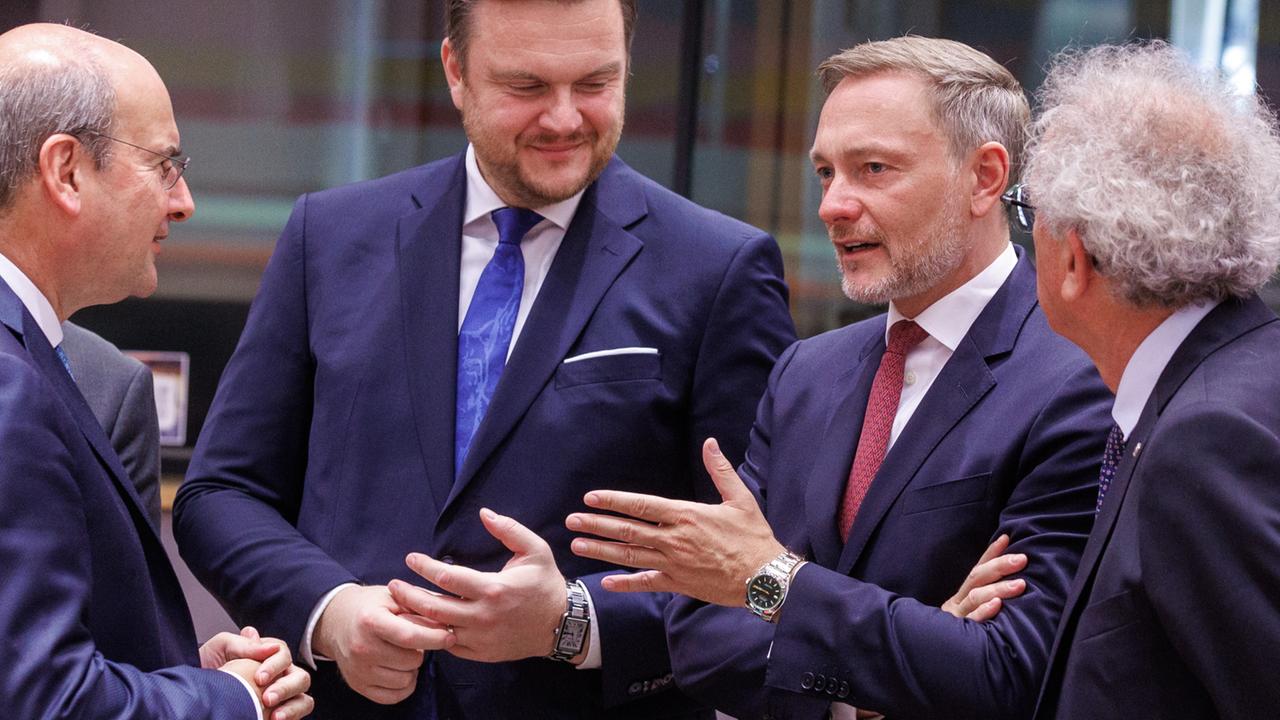Hungarian Prime Minister Orban's visit to Russia continues to cause a stir in the European Union. This was again evident at the meeting of EU finance ministers, where sharp criticism was voiced.
Following the trip to Moscow by Hungarian Prime Minister Viktor Orban, Germany and the other EU partners are increasing the pressure on Budapest. At a finance ministers' meeting in Brussels, most member states called on Hungary, which currently holds the six-month EU Council Presidency, to continue to make aid to Ukraine a priority.
Federal Finance Minister Christian Lindner (FDP) accused Orban of “going it alone”. “Hungary should know that the peace and freedom order of Europe as a whole is being defended in Ukraine,” said Lindner in the public debate. This must remain a “top priority” under Hungary's Council Presidency until the end of the year.
Swedish Minister of Finance: Orban's trip “an insult”
Hungary's Finance Minister Mihaly Varga had previously presented seven priorities ranging from the fight against illegal migration to competitiveness, but did not mention Ukraine.
Swedish Finance Minister Elisabeth Svantesson said she was “angry”. The fact that Orban had travelled alone to see Russian President Vladimir Putin against all agreements was “an insult not only to Ukraine, but also to all other 26 member states”.
Call for talks on Peace Conference
Orban called on the EU to mediate between Ukraine and Russia. In a published letter to EU Council President Charles Michel, he referred to his controversial talks with American presidential candidate Donald Trump as well as in Ukraine, Russia and China.
If elected in November, Trump would be ready to act as a peace broker in the Russia-Ukraine war “immediately,” he wrote in the letter. In the “likely event of a Trump victory,” the EU would face a major financial burden in supporting Ukraine, Orban warned. The background to this is the assumption that Trump would stop US support for Kiev.
The national conservative politician also called for discussions with China about the modalities of a peace conference. Diplomatic contacts with Russia should also be intensified again. Talks should be held with the countries of the southern hemisphere, whose support the EU has lost in its Ukraine policy.
Orban accuses EU of “pro-war policy”
Orban accused the EU of merely copying the “pro-war policy” of the current US administration. “In the current situation, we can (however) find a window of opportunity with a strong moral and rational basis to open a new chapter in our politics,” he said.
“I can (…) say with certainty that he (Trump) will not wait until his inauguration shortly after his election victory. He will be immediately ready to act as a peace mediator. He has detailed and well-founded plans for this,” Orban wrote in the letter.
Orban is considered largely isolated among the 27 EU governments. He is said to be close not only to Trump, but also to Putin. The EU Commission has repeatedly criticized violations of the rule of law in Hungary, for example in judicial and media policy. Only Slovakian Prime Minister Robert Fico openly shares his skepticism about arms deliveries to Ukraine.
“Peace Mission” with consequences for Hungary
The Hungarian head of government had massively angered the EU partners right at the start of the Hungarian Council Presidency from July 1st with a self-proclaimed “peace mission”. In addition to Trump, Orban visited Kremlin chief Putin in Moscow and Chinese head of state Xi Jinping in Beijing. During these trips, EU representatives repeatedly stressed that Orban was acting without an EU mandate. Chancellor Olaf Scholz (SPD) also emphasized that Orban was only making the trips as Hungarian head of government and was not speaking for the EU.
In response, the EU Commission announced a boycott of the informal ministerial meetings under the Hungarian presidency. In view of “the latest developments”, Commission President Ursula von der Leyen has decided that the commissioners will not travel to Hungary, said her spokesman Eric Mamer. Instead, only civil servants will attend.
Some EU governments are also planning to send only top officials and no ministers to informal EU ministerial talks in Hungary. Lindner and Federal Agriculture Minister Cem Özdemir (Greens) are also considering whether to travel to Hungary for council meetings in September. EU foreign policy chief Josep Borrell also wants to discuss with European foreign ministers whether an informal meeting in Budapest at the end of August should be moved to Brussels.
In addition, 63 members of the European Parliament are calling for Hungary to be stripped of its voting rights in the Union. SPD member of the Bundestag Axel Schäfer suggested withdrawing the EU Council Presidency.




